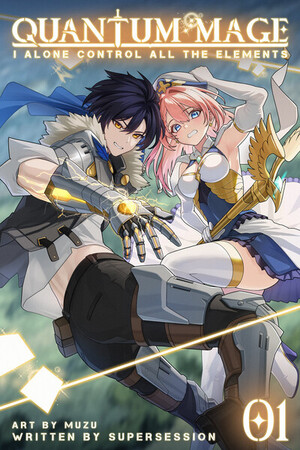Chapter 17:
Turning Point
Brown Sugar Cinderella
After the reflection I had with my mother yesterday, I began to understand many things about that girl—and also started to think that perhaps I, too, should bear part of the guilt.
Back then, as someone who carried the experiences of an adult life, I should have been wiser in steering the conversation. I should have been able to guide it into a more open exchange, without letting emotions sink too deeply.
Had I simply treated her words as nothing more than a satire once uttered by those chubby knights, the situation would never have become this complicated.
Strangely, if I really think about it, what she said wasn’t so different from the words of those knights—both were just sharp expressions of hatred toward rulers.
So why did my heart take hers so differently? Maybe because this small body interprets everything about her with admiration… maybe even love.
That’s the only clear reason I can hold onto. What else could it be? In my old life, I never once felt love. So it’s natural that now, with my old soul fused into this new body, I feel like I’ve been struck twice—both sides of me giving the same signal: love at first sight.
The more I think about it, the more the feeling grows. A strong urge pushes me to replay the situation, to fix it.
But doubt eats at me. What if this is only one-sided? If she still holds hatred toward me, then no matter what I do, it would only look like a prince desperate for attention—something that would only make her uncomfortable, or even despise me more.
So rather than let this doubt gnaw at my mind, I decided it would be better to confirm her feelings myself.
Cognitive Dissonance Theory says that when someone feels inner discomfort, they will try to justify their actions. That’s exactly what I’m doing now—seeking justification through her reaction, should we happen to meet again.
So once more, I went to the palace’s backyard, pretending to retrieve a “compression” book I had left there—just to have an excuse to cross paths with her.
And sure enough, when we finally did meet, I could clearly see the change on her face. Her gaze suddenly turned faint, and slowly she lowered her eyes. Her movements looked uneasy, almost awkward. From time to time, she dared to glance at me, but just as quickly turned her face away.
That expression gave me a strong signal. A sign that she, too, was struggling with dissonance inside herself. She was bearing the same psychological pressure, fighting the same inner conflict.
I realized—even if she still harbors resentment, she also carries guilt.
In other words, we’re trapped in the same storm. Both shaken, both fragile, both secretly wishing to admit our faults and apologize.
But the damage has already been done. Things are now stuck in awkward silence, leaving us both restless, unsure how to start again.
In the end, it all comes down to courage—the courage to take the first step to mend what’s already broken.
I know well—she likely feels she has no right to start, especially with me, a prince.
So I’ll do it. I’ll take the prerogative. Even if it means risking making things worse.
...
First, I must let go of the gloom still clinging to me. Our feelings must not be equally heavy, for if I sink into the same wounds as hers, then no one will be able to guide the way forward.
I cannot show that her words once staggered me. I must stand firm—be someone she can trust to find her way back from her chaos.
Because what I face is not a grown woman with steady emotions, but a fourteen-year-old girl—still unstable, still searching for herself. A girl forced from the start to bear a curse, the target of endless verbal abuse from those bound by caste. Those scars run deep, and I must understand that.
So instead of repeating our last meeting the same way, I must choose a better approach. I must act as an adult—able to keep the atmosphere under control, guiding the conversation away from raw feelings and gently back to a new beginning.
From that thought, I began crafting a scenario—arranging scene after scene as a natural setup, leading at last to a kind of punchline: an action that could evoke empathy and open a space for forgiveness, without making her feel cornered.
So I revisited that moment. How should I have said thank you? How could I make my sincerity resonate, so she could receive it sincerely too?
Perhaps there was something missing then—a subtle instrument, a small detail I had overlooked—that made her close herself off, unwilling even to listen to a simple phrase that might have been enough to dissolve the distance between us.
I closed my eyes.
Slowly, I put myself in her place, recalling my old life. Remembering the time I rushed into a burning building to save a baby.
What if I had made it out safely, and the mother thanked me with a half-joking smile—similar to the one I had given her? How would I have reacted then?
Especially in the mental and emotional state I was in back then—broken, even ready to end my life that very night—would I have accepted her thanks sincerely, or with the same apathy that girl showed me?
Suppose I truly was that apathetic—yet the people around me still tried to reach me with questions like: “Where are you from? Why are you out here at this hour?” Then, would I have answered honestly, admitting that I was actually planning to end my life by jumping off the bridge near that building?
If I had truly said that, what would those people have done next?
On the other hand, if I chose not to say it, when my will to live was already so faint it was nearly gone—what exactly was I hoping for? What did I expect from the world, and from the people around me at that moment?
Was I longing for recognition, for some form of appreciation for saving that baby?
Or… was it, in truth, something far simpler than that?
...
I let out a long breath, trying to release the weight pressing against my chest, and slowly opened my eyes. In that brief moment, I felt as if I had found a turning point—a new foothold upon which all the contradictions that had both delighted and tormented my heart could finally rest.
My mother was right—it’s only a matter of perspective. Yet I never expected that the perspective she meant might be a reflection of my own past self.
I patted my cheeks a few times, rousing the awareness that had dozed off in gloom. With what little strength I had gathered, I rose from the bed where I had been lying, marking the beginning of a new chapter in my small steps forward.
Come on, Lucian… You already understand the method; you already have everything you need to seal every crack and mend every hole. There is no longer any reason to sink. You can, and you must fix this.
With hope and conviction now standing tall and unshaken, I cast aside every trace of egocentrism—directing my steps once more toward that filthy valley of thorns.
All for the sake of saving someone from the snare of that place, so that they would not lose themselves further in the same darkness, nor fall deeper into that ashen abyss. I wanted to stop them before they were tempted into choices that would bring nothing but regret—regret that, in truth, would be my own.




Please sign in to leave a comment.